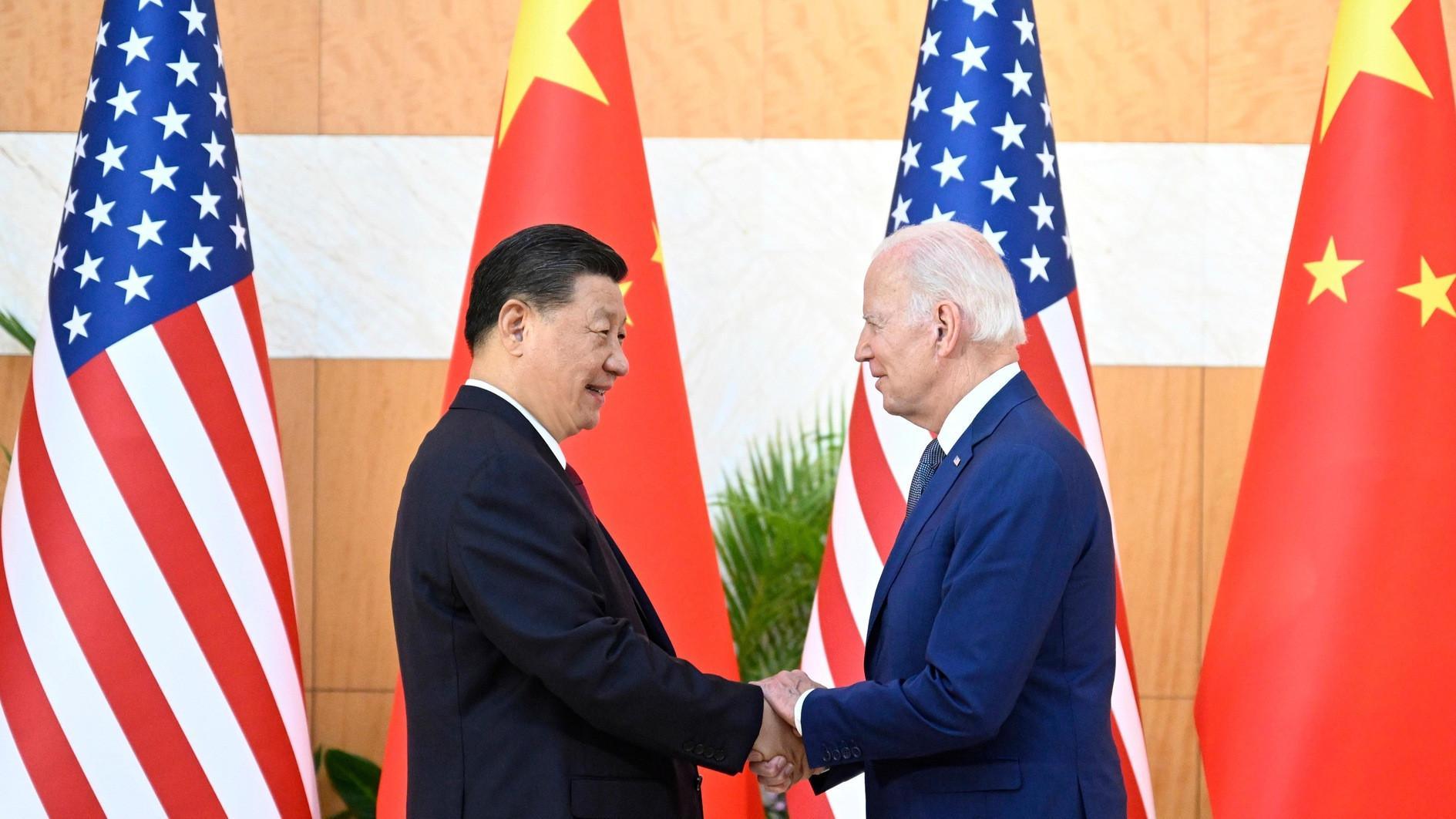
U.S. President Joe Biden and Chinese President Xi Jinping agreed at their first summit in a year on Wednesday to restore military communications between the two countries, even as Biden went off script by saying he still considered Xi a "dictator."
The leaders shook hands and strolled around a garden at a historic California estate during four-hour talks aimed at preventing growing tensions between the world's largest economies from spiraling into conflict.
They also agreed that China would crack down on the production of ingredients for fentanyl, responsible for a deadly epidemic of opioid abuse in the United States, with Xi saying he "sympathizes" with US victims of the deadly drug, which has ravaged communities across the country.
But Xi and Biden remained far apart on the wider flashpoint of Taiwan, with the Chinese president telling his US counterpart to stop arming the island and that reunification was "unstoppable."
Beijing claims sovereignty over the self-ruling democracy and has not ruled out seizing it by force.
The two leaders had not met in person since they held talks in Bali in November 2022, and relations nosedived after the United States shot down an alleged Chinese spy balloon in February this year.
But Biden told a press conference at the Filoli estate that his talks with Xi, whom he has known since 2011, were "some of the most constructive and productive discussions we've had."
'He's a dictator'
The United States would compete "vigorously" but "responsibly" with an increasingly assertive China "so it doesn't veer into conflict or accidental conflict," Biden said.
"He and I agreed that each one of us could pick up the phone, call directly and we'll be heard immediately."
The separate move to restore high-level US-China military-to-military communications, which China severed after then-US House speaker Nancy Pelosi visited Taiwan in 2022, was "critically important" to avoid possible conflicts, Biden added.
The two sides also agreed to hold talks on artificial intelligence and to deepen cooperation on climate change ahead of the COP28 conference in Dubai next month.
But a day of painstakingly choreographed diplomacy ended with a not-so-diplomatic remark as Biden walked offstage after his press conference.
When a reporter asked if he would still say Xi was a dictator as he had in June, a remark that prompted an angry response from Beijing at the time, Biden replied: "Well look, he is."
"He's a dictator in the sense that he's a guy who's running a country, a Communist country, that's based on a form of government totally different than ours."
Diplomats had spent months trying to get the talks to happen, and then arranging the smallest details at the exclusive estate, which featured in the US television soap opera "Dynasty" in the 1980s.
Xi appeared to brush off the comment, telling an audience hours later that growing US-China ties were vital to both countries.
"I believe that once the door to China-US relations is opened, it will not be closed again," he said.
"China is ready to be a partner and friend of the United States."
The carefully cultivated symbolism of the day saw red carpet handshakes, delegations sitting on either side of a huge table, and culminating with Biden and Xi taking the air in the grounds.
They also shared a working lunch of herbed ricotta ravioli and tarragon chicken with gold rice pilaf.
'Stop arming Taiwan'
Xi and Biden waved at reporters during their garden walk, and Biden had raised two thumbs up when asked how the talks went.
The Chinese leader had earlier warned that "turning their back on each other was not an option," and said that "Planet Earth is big enough for the two countries to succeed."
Biden and Xi also discussed the wars in Gaza and Ukraine, on which their countries have found themselves backing opposing sides.
But Xi also had tough words for Biden after the talks, particularly on the subject of Taiwan.
"The US side should... stop arming Taiwan, and support China's peaceful reunification," Xi told Biden, according to a readout from China's foreign ministry.
"China will realize reunification, and this is unstoppable."
Xi nevertheless insisted in a later speech to business leaders that Beijing did not want confrontation with anyone.
"China does not seek spheres of influence, and will not fight a cold or hot war with any country," he said.
"The great rejuvenation of the Chinese nation cannot be achieved without a peaceful and stable international environment."
Russia, a partner of China in what Washington sees as a growing authoritarian alliance, welcomed the meeting, with the Kremlin calling the talks "important for everyone."